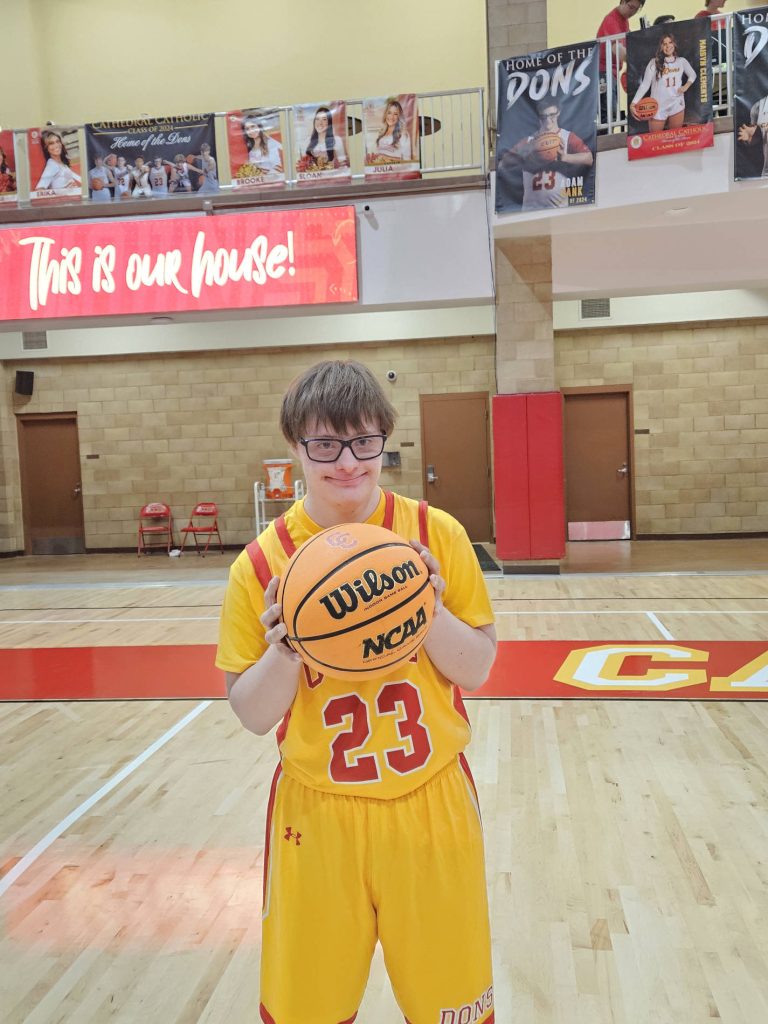SAN DIEGO — The recent surge in COVID-19 cases, fueled by the highly infectious Omicron variant, has had a major impact on parishes, schools and ministries in the Diocese of San Diego.
About 7 percent of the diocese’s workforce was sidelined for five to 10 days in January, either because they were sick, had tested positive for the virus or had contact with someone who was infected. It’s a reality that most organizations are facing.
John Galvan, director of the diocesan Office for Schools, said that the Omicron variant has resulted in “a surge the likes of which we have not seen throughout this entire pandemic.”
In response to this most recent spike, Bishop Robert McElroy announced in mid-January that masks are now mandatory at Mass, regardless of vaccination status. He also encouraged parishes to review any events scheduled for the next few weeks to determine whether they could be canceled, postponed or modified to better mitigate the spread of COVID-19.
“I don’t think anybody’s in panic mode,” said Auxiliary Bishop John Dolan, but the diocese is certainly encouraging pastors and their flocks to exercise caution.
When it comes to wearing a facial covering, observing physical distance, and avoiding unnecessary gatherings, Bishop Dolan is practicing what he preaches.
“I’m hearing (of) more cases than I ever had heard before,” he said, referring to friends and acquaintances, including brother priests, who have tested positive recently.
As of Jan. 18, San Diego County’s positivity rate was about 22 percent, meaning that almost one-fourth of all COVID tests were returning a positive result — and that’s not taking into account the home tests that have detected infection and had not been reported. Just a week earlier, the positivity rate had stood at 31.4 percent. The decline can be attributed to San Diegans, like those at local parishes, who are taking the virus seriously and observing such practices as wearing masks indoors at public settings, maintaining physical distance, and washing their hands frequently.
More than anything, the local Church’s response to Omicron has been a call to increased vigilance.
For example, employees of the diocesan Pastoral Center were informed on Jan. 4 that, “out of an abundance of caution,” they would be required to wear a multi-layer facial covering at all times and to check their temperature upon arrival.
In addition, the diocese has recommended vaccination, including the booster, for all who are eligible.
Like many local parishes, St. Mark’s in San Marcos isn’t implementing new protocols in response to the spike, but rather is continuing the measures that have served it well throughout the pandemic. These include allowing parishioners to choose from among five indoor and five outdoor Mass times every weekend.
Father Bruce Orsborn, pastor, is aware of parishioners who have contracted the virus.
“There are quite a few that have had it, but with mild symptoms,” he said, adding that “the bigger effect” of the recent surge has been the number of people having to quarantine after coming into close contact with an infected person.
Diocesan Chancellor Marioly Galván, who also heads the diocesan Office for Evangelization and Catechetical Ministry, reflected on how parish catechists are responding to the surge.
“Faith-formation instruction has either been postponed (at some parishes) for a few days or weeks, others have transitioned online during the spike, and yet others have continued to conduct their classes in-person with the proper precautions,” she said.
Because of the rising COVID numbers, Galván opted to limit attendance at the diocese’s Spring Forward catechetical conferences in January and February to 100 people each, which would keep attendees more socially distanced. The diocese will require participants to wear masks at the conferences and there will be hand-sanitizing stations available.
Some Catholic schools delayed their students’ return to classes after Christmas break, including Mater Dei and Cathedral Catholic high schools, both of which also required negative PCR tests from every returning student. It was a major logistical undertaking organized in a matter of days.
“During this time of the Omicron variant outbreak, which is highly contagious, we need to be extra cautious,” Jesuit Father Joaquin Martinez, president of Mater Dei Catholic, wrote Jan. 7 in a message to school families.
Cathedral Catholic provided all students and employees with the opportunity to be tested on campus Jan. 3-4 and Jan. 6-7. Dr. Kevin Calkins, school president, said that “easily close to 2,000 people” were tested during that time.
“Cathedral Catholic has been able to pivot and respond to each time COVID has caused disruption to daily life, and this time is no different,” said Calkins. “On the other hand, everyone is exhausted by the ongoing pandemic and the evolving guidance from county and state officials.”
Galvan, the director of the diocesan schools, said one of the biggest challenges for local Catholic schools has been the limited supply of COVID tests.
In late December, California Gov. Gavin Newsom pledged that free COVID-19 tests would be available for all K-12 students in the state’s public schools. Notably left out were the state’s Catholic schools.
Another challenge, Galvan said, has been the difficulty of keeping schools fully staffed as infections and exposure force faculty and staff members to quarantine.
“Finding substitutes is near impossible right now,” he said.
Amidst rising COVID numbers, John Galvan counsels local Catholics against despair.
“In (Jesus Christ) we have hope, we have salvation, and we have a life transformed,” he said.
“I just encourage … all people of faith to cling to that, because that’s (what’s) going to get you through this, the hope that faith provides.”
More information about where to get free vaccinations and boosters is available at sdcatholic.org/vaccine.









